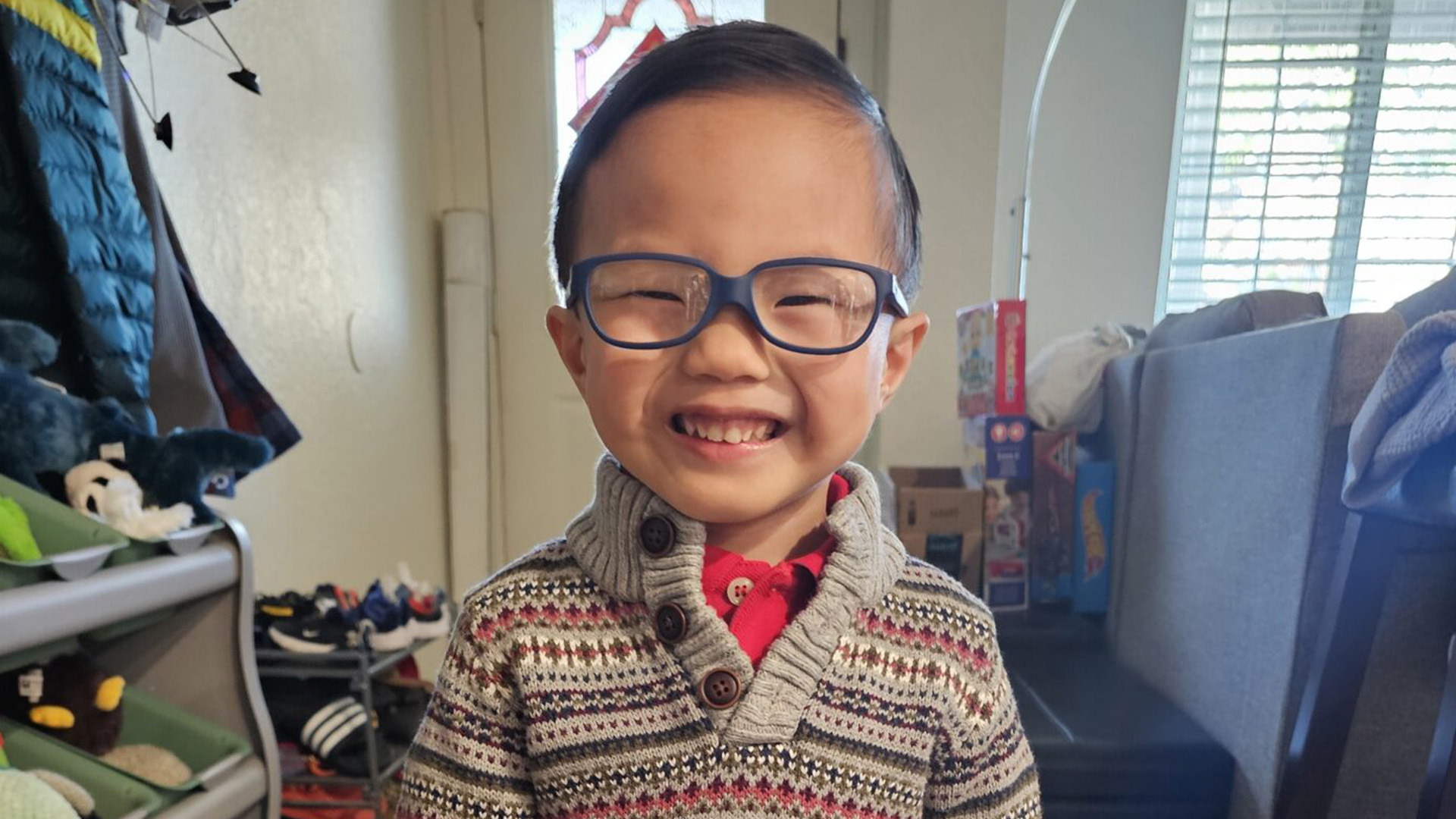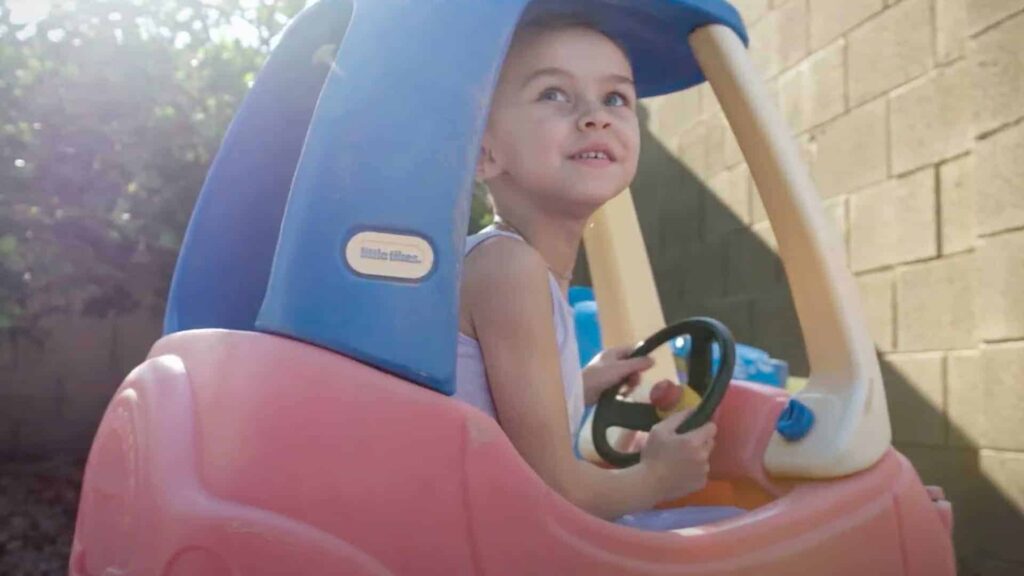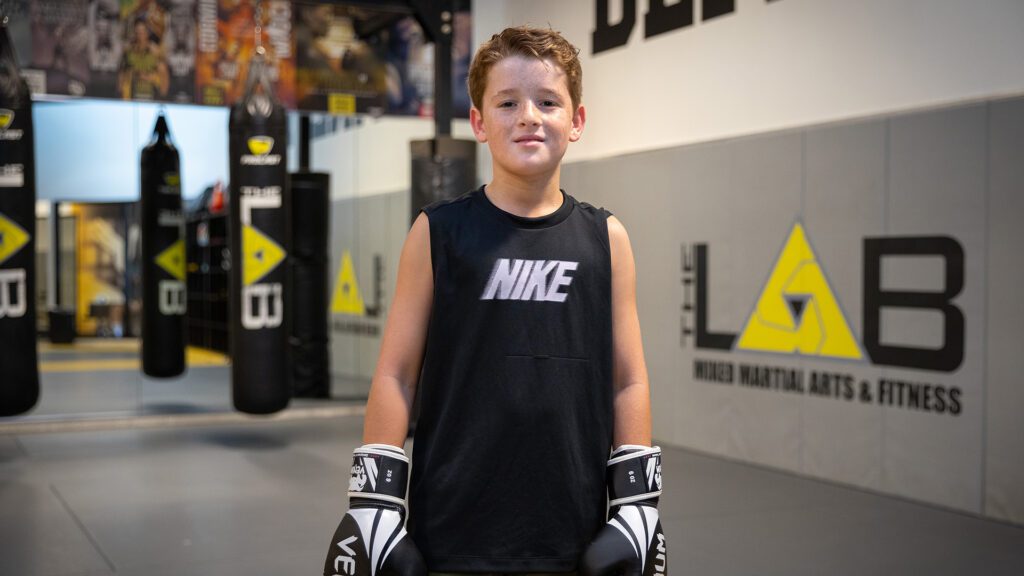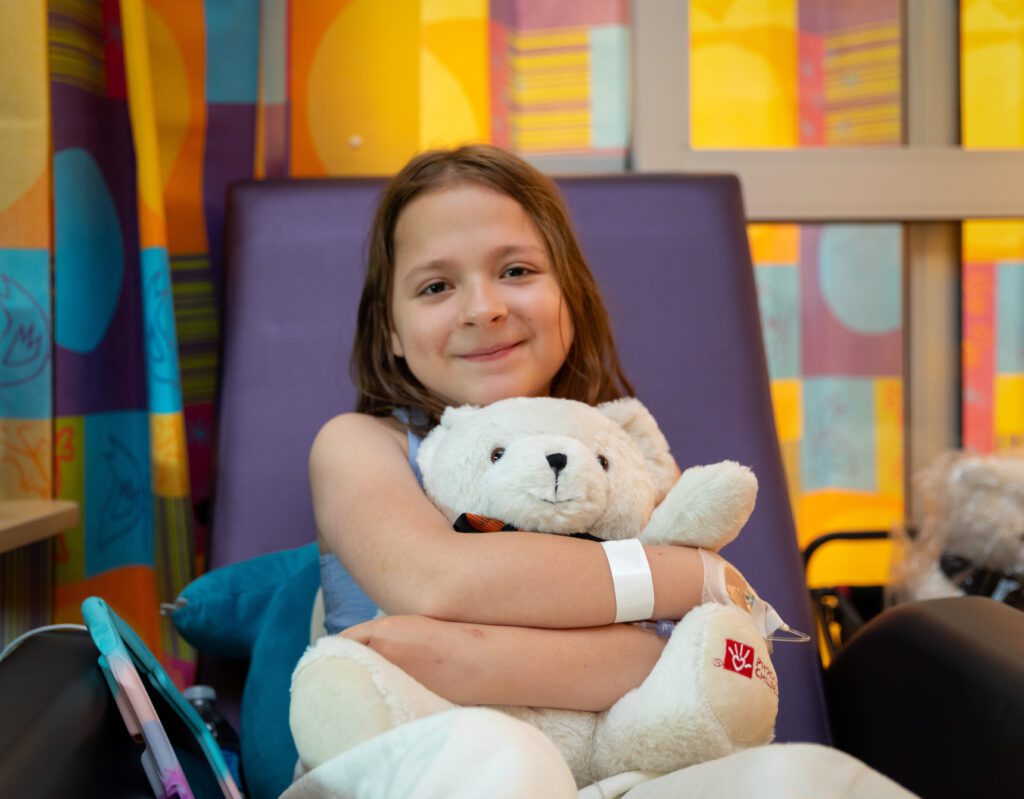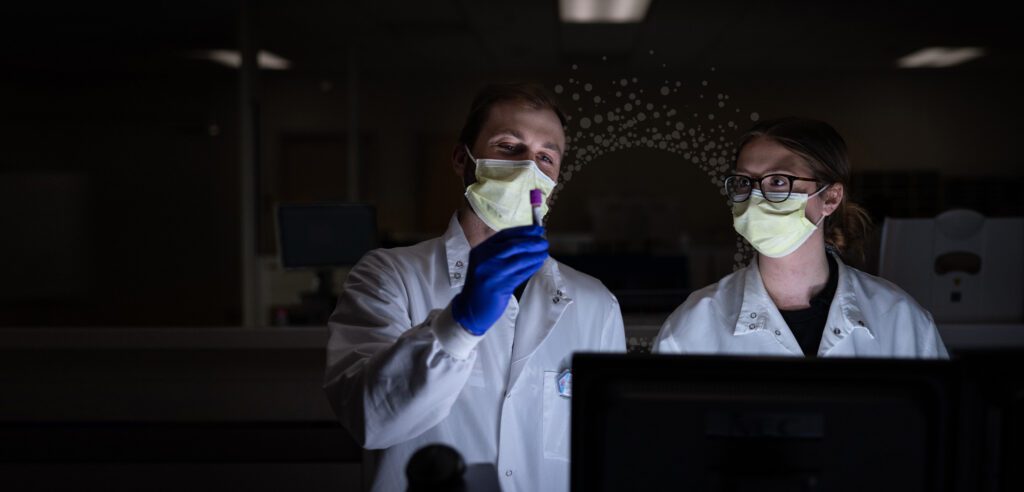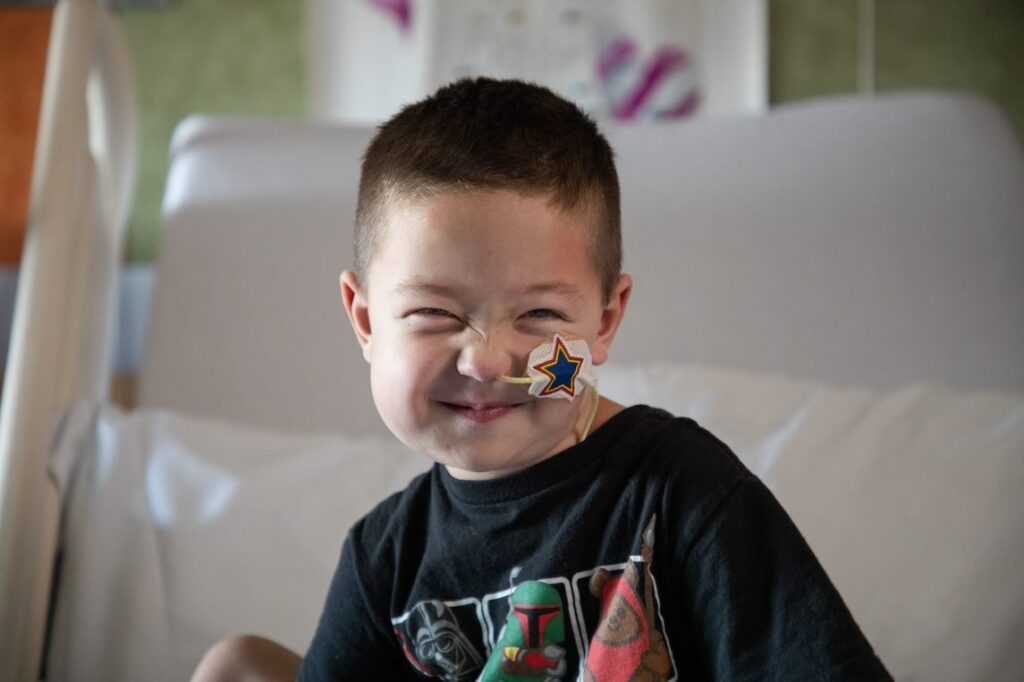The COVID-19 pandemic was a time of darkness and uncertainty for so many, especially families dealing with medical issues. For Melody and Kyle, learning they would welcome their first child into this world brought both excitement and worry. And those worries weren't unfounded. During her 20th week of pregnancy, Melody and Kyle learned their son, Robert, had a heart defect. After a third heart echo and two cardiologists in the Valley confirmed the diagnosis, Melody and Kyle were referred immediately to Phoenix Children's.
They had a two-hour consultation with Christopher L. Lindblade, MD, a pediatric cardiologist and medical director of the Fetal Cardiology program. He explained to Melody and Kyle that Robert did indeed have a heart defect and would need surgery after his birth.
“It was amazing, and he broke down all of the details that we needed as soon as Robert was born,” Melody says. “He was supposed to go to 40 weeks, have surgery and start recovery.”
Robert didn’t make it to term. At 32 weeks and 5 days, Melody went into labor after receiving a fetal echo. “That wasn’t supposed to happen, but our team worked overtime to make sure they had everything ready for Robert,” Melody recalls. “He was immediately air-evacuated to Phoenix Children's after his birth and went straight to the NICU (Neonatal Intensive Care Unit).”
Making the hospital a little less scary
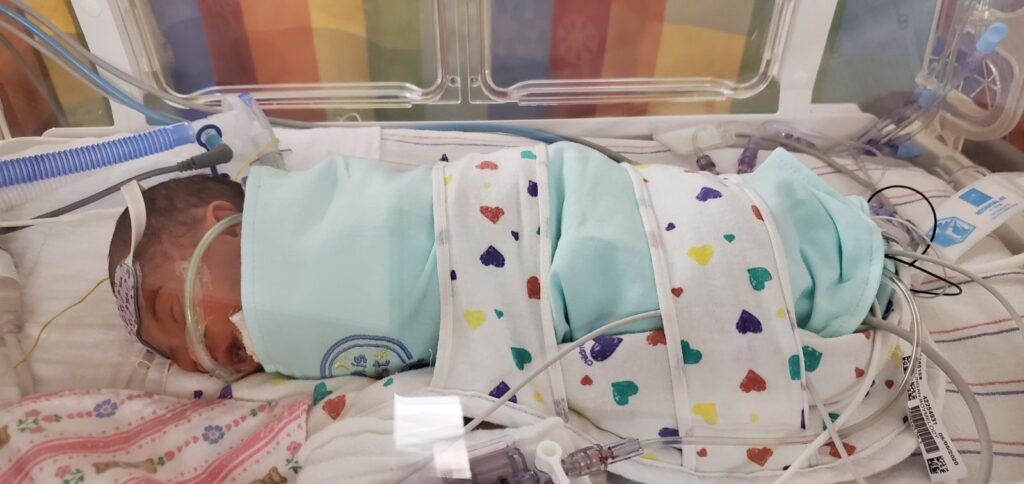
Melody says things were frightening at first in the NICU. This was the time when everyone wore masks in the hospital, and no one could engage in physical contact. Robert was placed in the main room where multiple babies were, with only curtains separating them. During his first days, Robert kept his parents and care team on their toes. He would hold his breath and stop breathing, which added to the uncertainties and fear. But the care team understood those fears, and Melody says she and Kyle will never forget how they went out of their way to bring them comfort and hope.
“When I first got to the NICU, a nurse came up to me and told me I should sit down because I had just given birth. I cried so much seeing Robert,” Melody says. “All the doctors and staff were so great and helped put us at ease. They put Robert on meds right away and made sure he would be all right.”
Melody feared leaving her son, even for a moment, but she says the nurses reminded her frequently to take care of herself so she could be there for Robert. With all the uncertainty, Melody faced postpartum depression, which Robert's care team recognized. Through the restrictions in place, they helped her connect with Robert by giving her tasks to do. Her job was to help Robert grow, and NICU staff patiently showed her what to do and encouraged her to pump breast milk.
They also gave dad his own tasks, so he too could find comfort in the process. “I was so grateful for them giving us tasks to make us feel more involved,” Melody says. “It was just such a good experience.”
Finding the right support, thanks to philanthropy
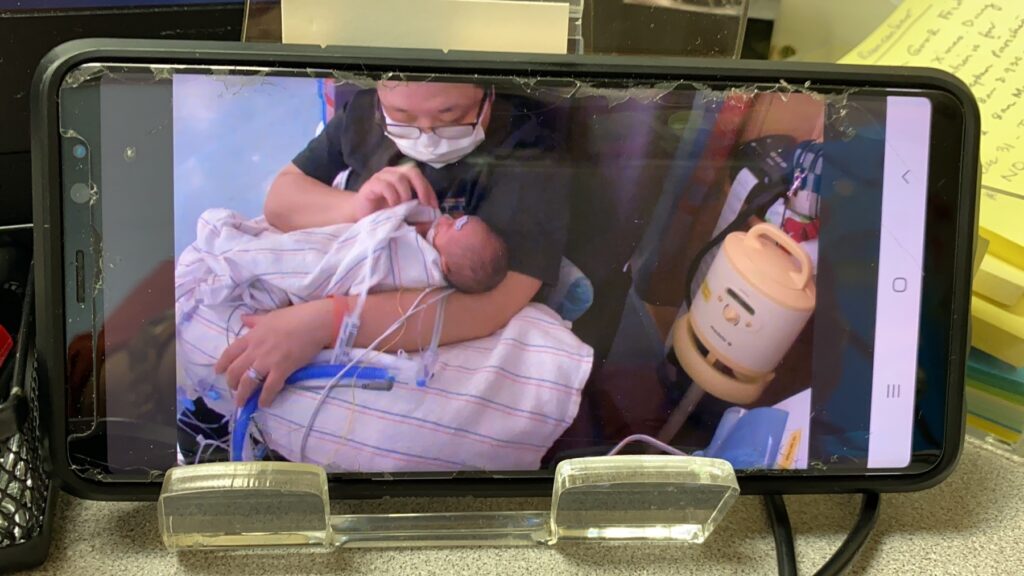
Because he was born prematurely at 32 weeks, Robert remained in the NICU until he was big enough for his first of three open-heart surgeries at Phoenix Children’s Center for Heart Care. He had pulmonary atresia—a birth defect where the valve that controls blood flow from the heart to the lungs fails to form—transposed great arteries, and a severe ventricular septal defect. That meant his heart was working harder to pump blood.
Melody says her family received financial support from Social Work Services while staying at the hospital for long periods. Additionally, the family benefited from Palliative Care, Child Life and Animal-Assisted Therapy—programs at Phoenix Children's made possible through philanthropy. Because of philanthropy, Kyle and Melody were also able to connect with Robert's care team and check in on him through Alexa video conferencing during times when they left the hospital to care for themselves. That made a world of difference for the family and extended family.
“Child Life and Animal-Assisted Therapy helped Robert feel more at ease during inpatient stays or before surgery,” Melody says. “I also relied heavily on the Palliative Care team, the social workers—the entire team—because there was no one with me.”
Looking to the future
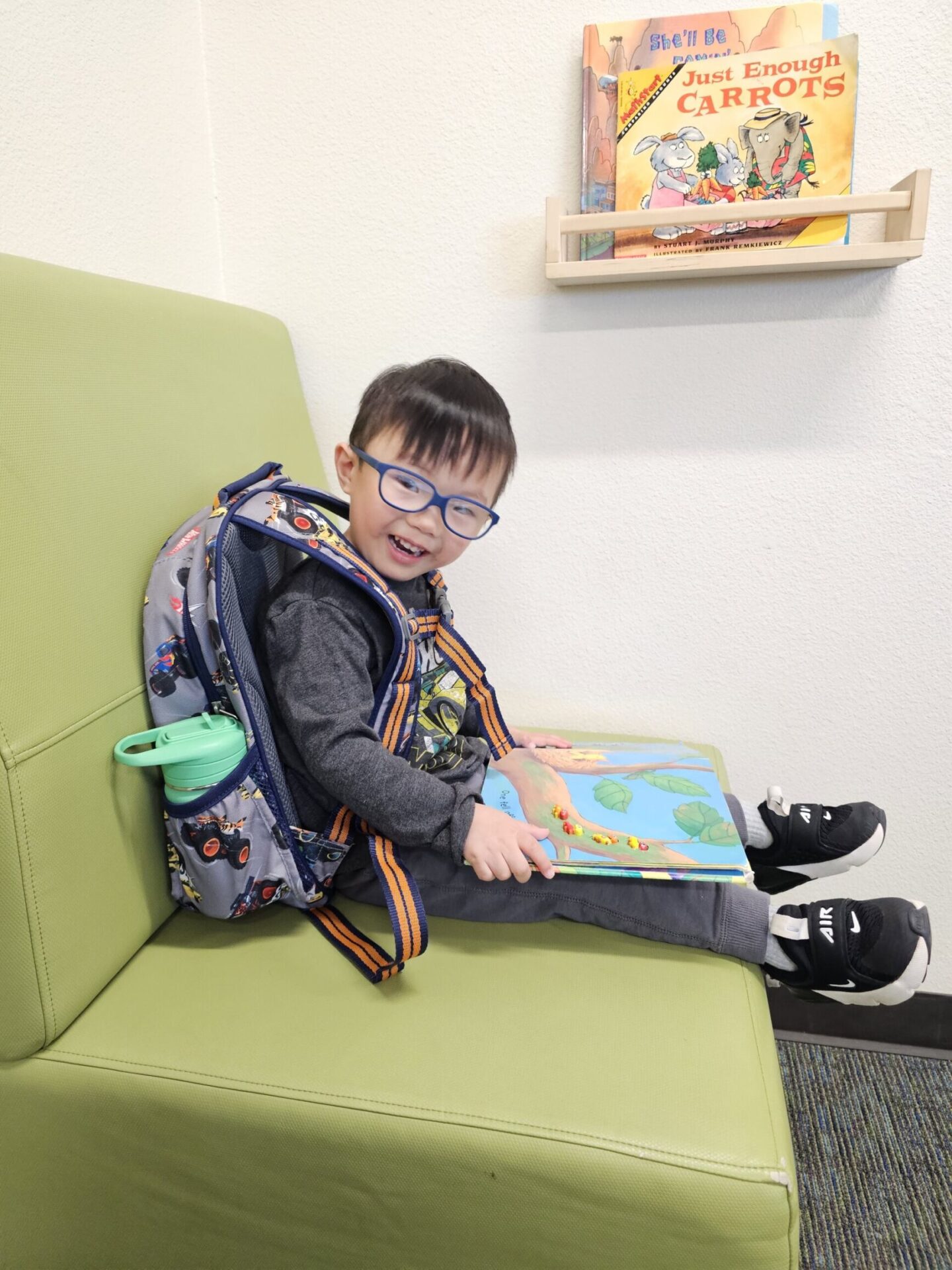
Today, Robert is 3 going on 4 and about to finish his first year of preschool. He has some developmental delays, but Melody says he’s now thriving. Robert loves cars, music, cooking and gaming, and is more resilient than ever after undergoing 11 different procedures throughout his short life.
Currently, he's undergoing speech therapy and continues with follow-up care. Melody and Kyle credit the amazing support they received from beginning to end at Phoenix Children’s. They will never forget how Phoenix Children’s NICU was the family's light during Robert’s time there, and how their care team ensured they had all the essential resources and tools necessary to care for Robert at home. “Without this support, I wouldn't have had the comfort I did with him,” Melody says.
And because of her family's experience at Phoenix Children's, Melody is a big supporter. When she heard that a new NICU was opening at Phoenix Children's Hospital – Thomas Campus, one that includes bathrooms and showers in each room and with lots of windows and light, Melody celebrated. “We are so grateful to everyone at Phoenix Children’s who has helped us walk through this difficult journey.”
- Phoenix Children's staff has helped us throughout our difficult journey, starting from our very first contact during our fetal echo to three open-heart surgeries. We have had our care team follow us throughout this entire time, and they continue to provide care and support, not just for Robert, but for us as a family.MelodyRobert's mom
The expert care delivered by Phoenix Children's Center for Fetal and Neonatal Care is possible thanks to our community's generosity and unwavering commitment to our youngest patients. With the help of our donors, countless families and their babies benefit from the gift of optimized care and reassuring support during times of uncertainty. We could not offer this level of care without your support.

